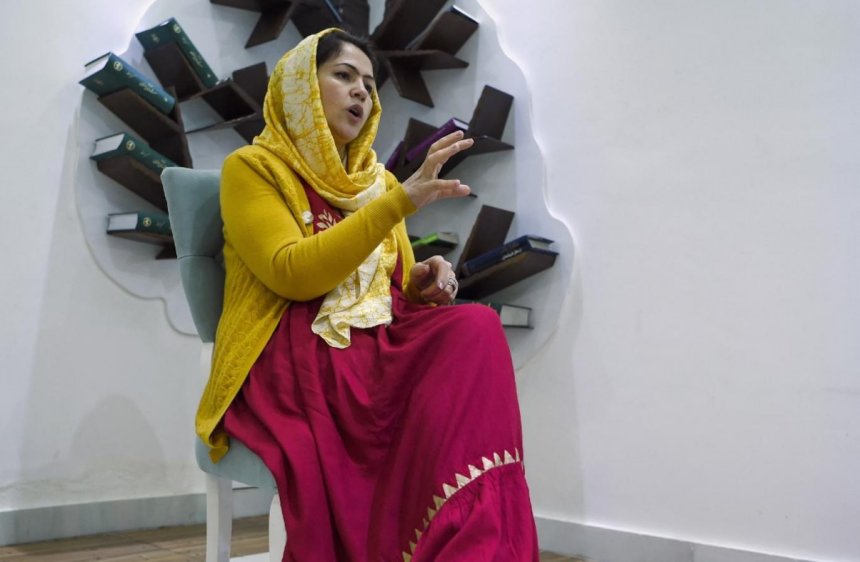RASC News Agency: Fawzia Koofi, a former Afghanistani member of parliament and prominent women’s rights advocate, has sharply criticized the Taliban’s recent invitation to exiled political opponents and former officials to return to Afghanistan, describing it not as a gesture of reconciliation, but as a calculated ploy to entrap and silence dissenting voices. Koofi’s remarks came in response to a statement made by Taliban-appointed Prime Minister Mullah Mohammad Hassan Akhund during his Eid al-Adha address at the presidential palace in Kabul. Akhund publicly invited former government officials and individuals who had previously cooperated with the United States to return home, reiterating the Taliban’s so-called “general amnesty” and insisting that no harm would come to returnees.
This message, notably endorsed by Zalmay Khalilzad, former U.S. Special Representative for Afghanistan Reconciliation, was promoted as a sign of the Taliban’s willingness to move beyond the past. However, human rights experts and former Afghanistani officials warn that such declarations are part of a broader campaign of deception designed to neutralize opposition while maintaining the illusion of peace and stability. Koofi emphasized that the grim experiences of those who have already returned including former security personnel and government workers reveal a drastically different reality. Many returnees, she stated, have been subjected to arbitrary detention, torture, and in some cases, extrajudicial execution. She cited documented evidence of systematic assassinations targeting ex-members of the Afghanistani armed forces and intelligence services.
Her warnings are corroborated by findings from the United Nations Assistance Mission in Afghanistan (UNAMA). In its 2024 quarterly human rights report, UNAMA confirmed that despite Taliban claims of a general amnesty, the regime continues to detain, torture, and kill former government employees and members of the security sector. Between January and March alone, the UN recorded 38 arbitrary arrests, 10 cases of torture, and at least four extrajudicial killings all involving individuals affiliated with the former Republic. Despite these credible reports, the Taliban has routinely dismissed such accusations as “enemy propaganda,” seeking to discredit international observers and human rights organizations. Meanwhile, the U.S. State Department has repeatedly expressed deep concern over Taliban reprisals and the regime’s failure to uphold even its own amnesty declarations.
The Taliban claims that war has ended under its rule and that nationwide security has been restored. It has formed a “Commission for the Return of Political Opponents” to facilitate its outreach. Yet, not a single prominent opposition figure currently living in exile has responded positively excluding Hamid Karzai and Abdullah Abdullah, both of whom remained in Kabul following the Taliban takeover in 2021 and have played largely symbolic roles since. Exiled opposition leaders and pro-democracy advocates have consistently maintained that the Taliban’s calls for dialogue are fundamentally disingenuous. Rather than engaging in meaningful negotiations, the group seeks absolute submission, demanding allegiance under the guise of peace. Koofi and others have made it clear: true reconciliation cannot exist without justice, inclusion, and accountability principles the Taliban continues to flout.
In the current climate of fear, repression, and gender apartheid, the Taliban’s so-called amnesty rings hollow. It has become increasingly clear that the group’s appeals for return and unity are not borne of goodwill, but are tactical maneuvers designed to lure former opponents back into a tightly controlled environment only to silence them, permanently if necessary.






